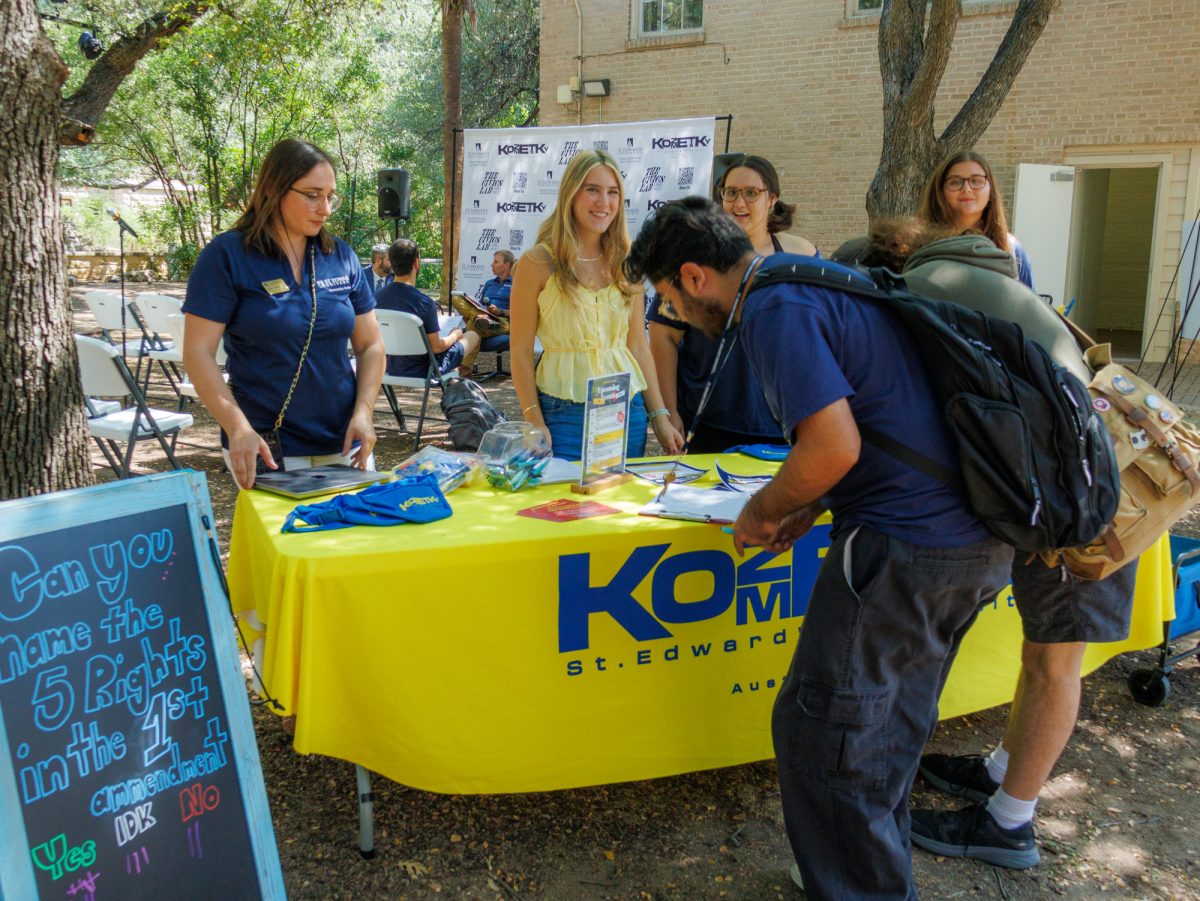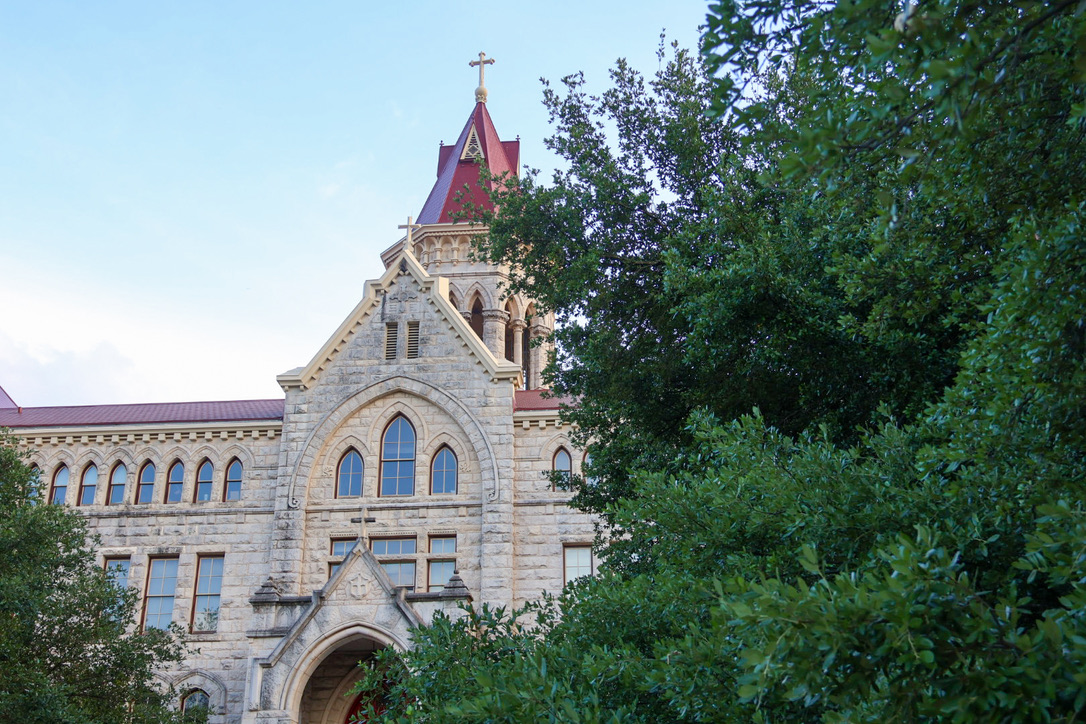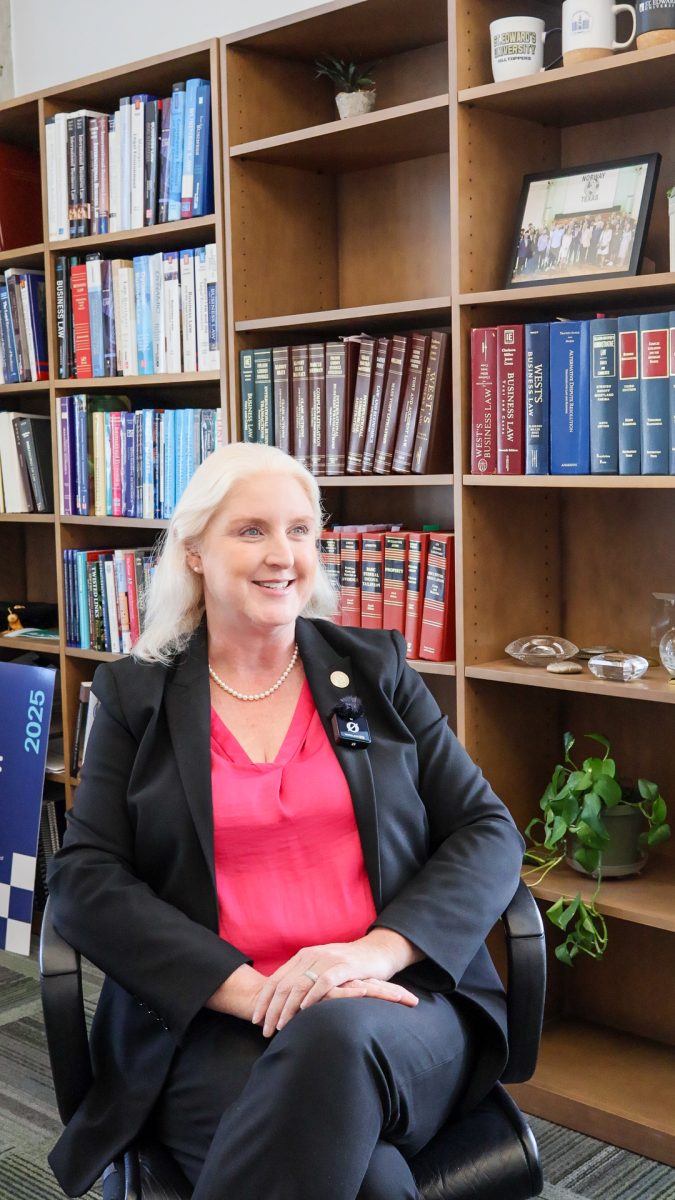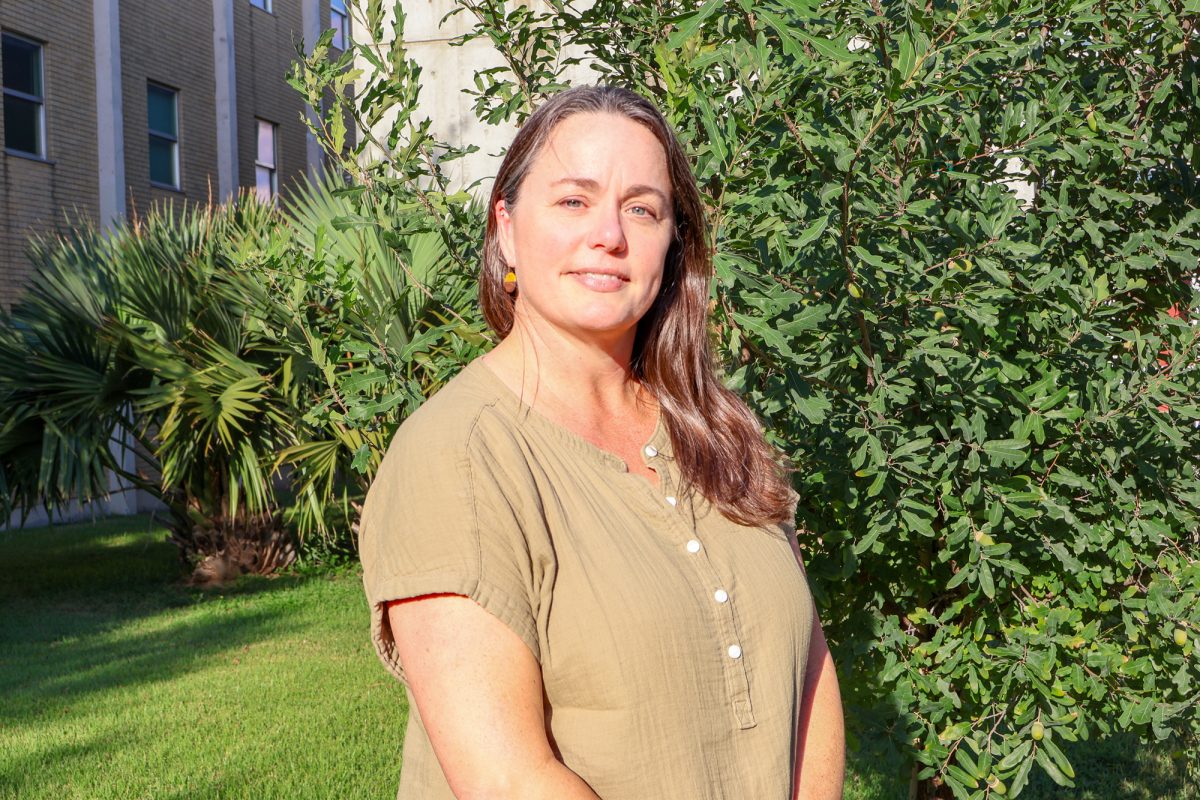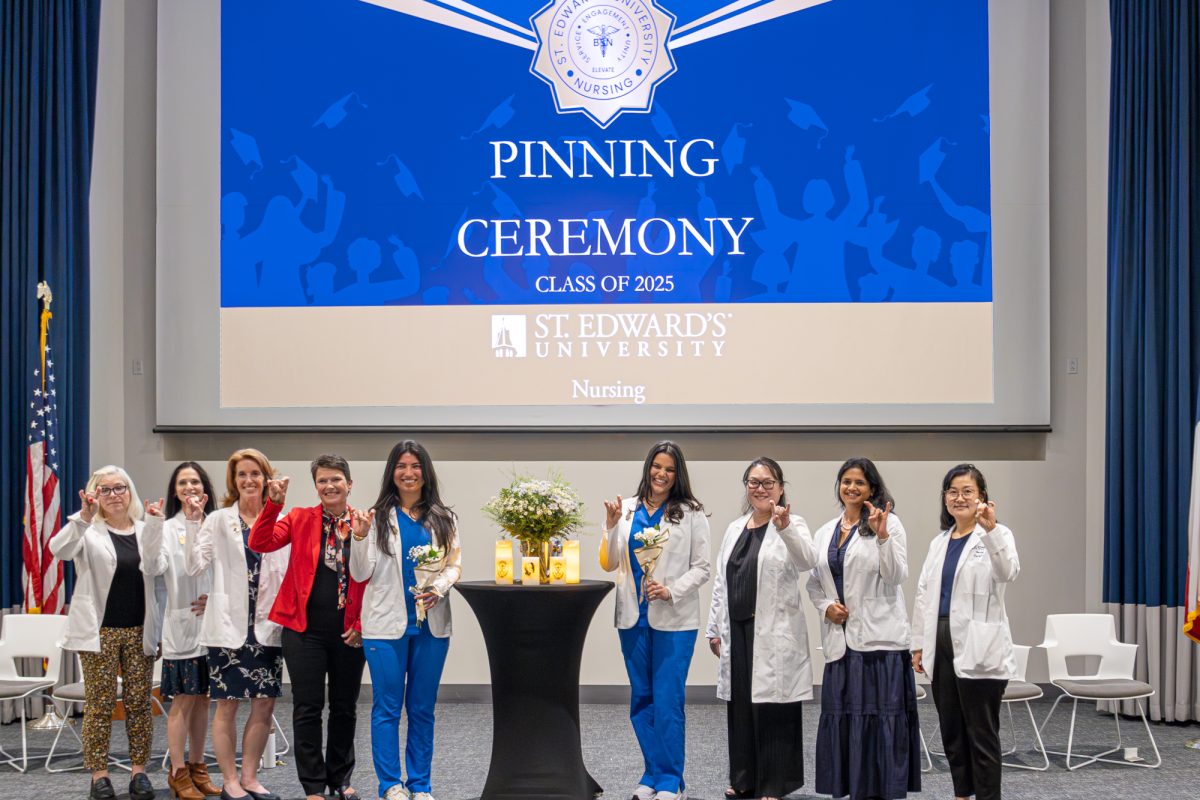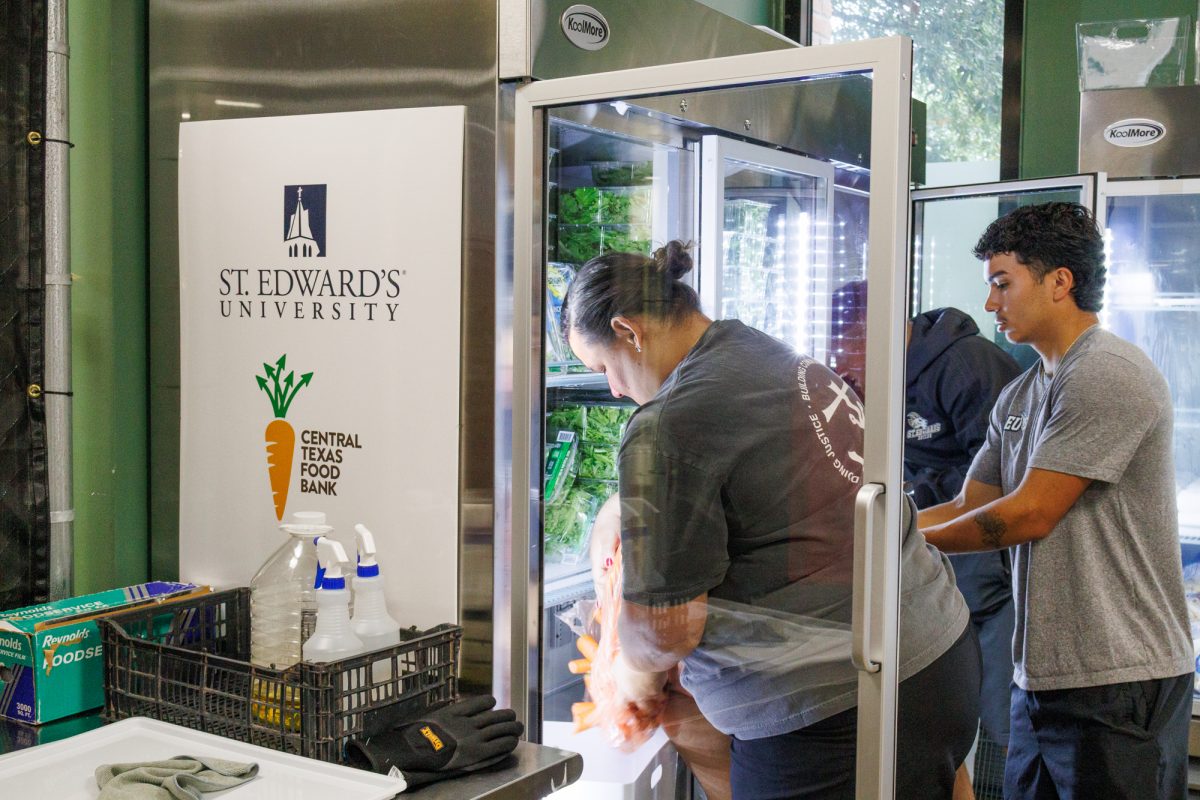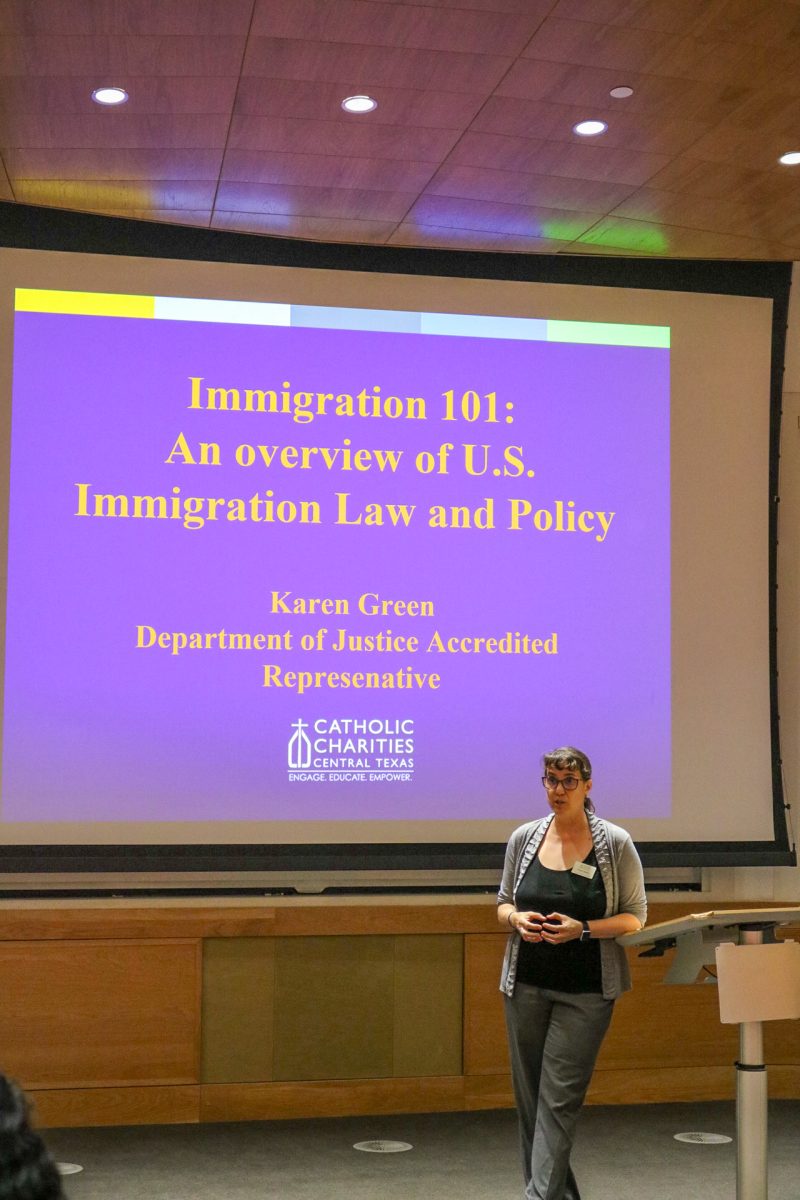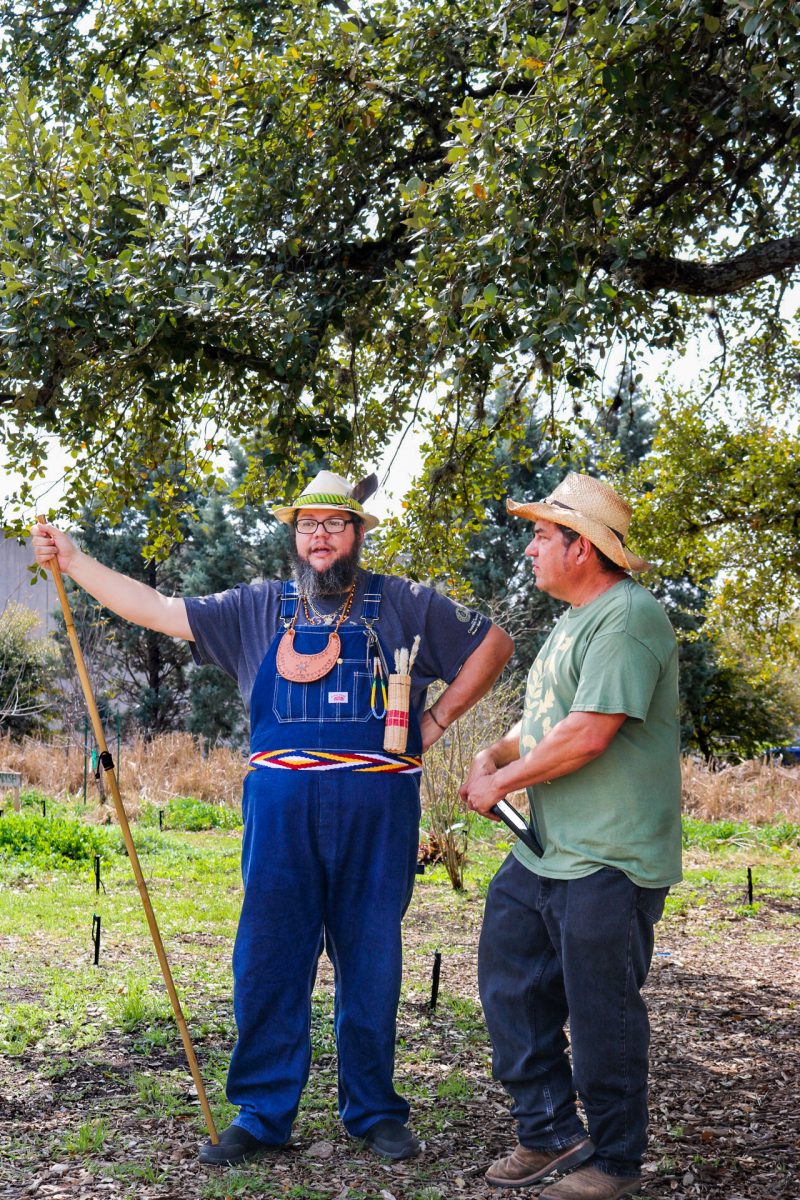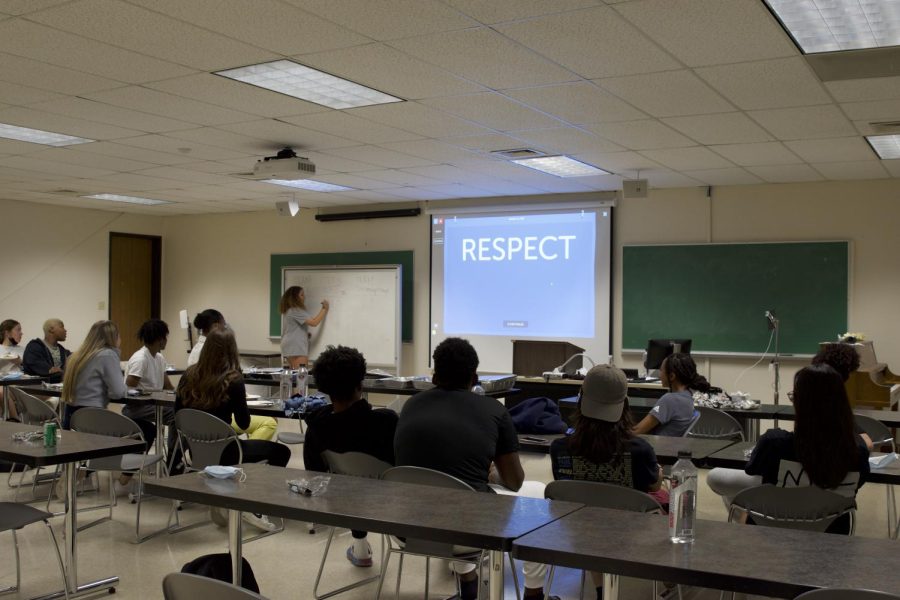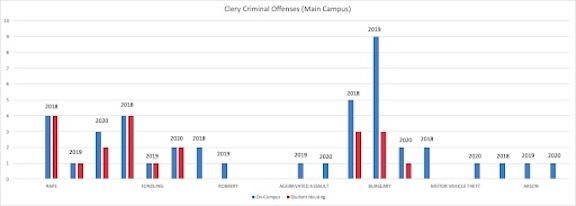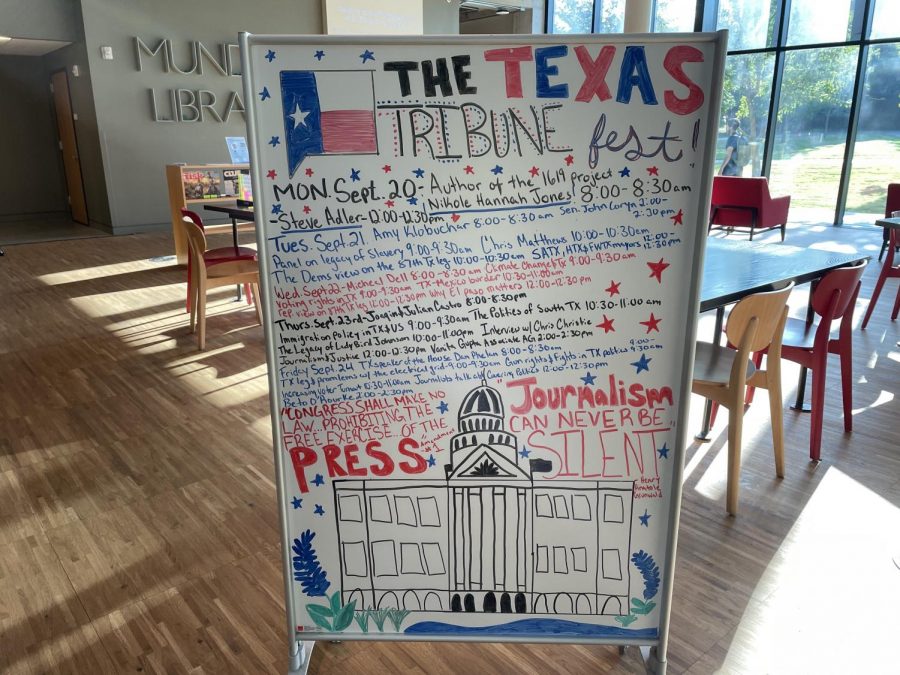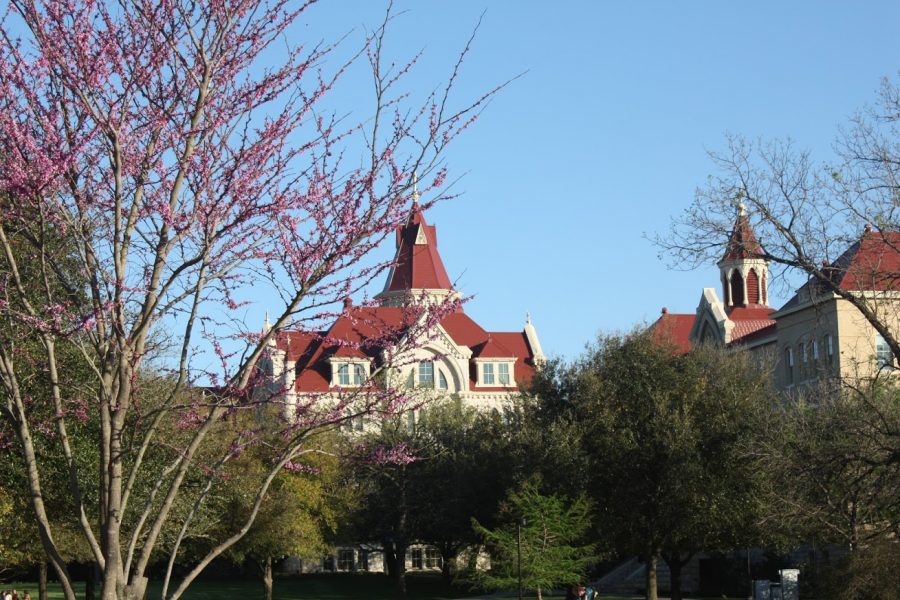Before its grand opening celebration last week, the Kozmetsky Center held its first event of the semester, titled “New Laws & What They Mean For College Students,” focusing on recent legislation affecting free speech, student loans, THC and diversity equity and inclusion
Kozmetsky Center director David Thomason led the discussion panel alongside the Associate Dean for the School of Behavioral and Social Sciences Brian Smith and Texas Public Policy Foundation policy analyst John Bonura.
Thomason started the discussion with the question “Are controversial subjects allowed in Texas College Classrooms?” to which Bonura said , “I think universities, one of their main functions, is to be able to have real intelligent conversations about controversial issues regardless of what side you are on in the issue.”
The panel then went on to detail how many students lack understanding of new laws, even if those laws affect them. Panelists also discussed the recent termination of two Texas A&M faculty members and why topics such as gender identity and LGBTQ+ should be allowed in the classroom. “We need to be able to discuss controversial issues at university because the purpose is to expand the scope of human knowledge.” said Bonura, emphasizing that there is a time and place for certain topics. “If the discussion was in the class syllabus over gender ideology, it might have been a more appropriate venue to discuss the issue.”
Smith, who represents the university as an associate dean, clarified that he was speaking with his own opinions as a political scientist and not as representation of the university.
“When we greet our university mission, it is to encourage individuals to confront critical issues of society, so it is important that controversial issues are in our classes.” Smith said. “I think the problem is too many of us are afraid of this, and so we practice a lot of self censorship because we’re afraid that when we do say things, people may not agree that it’s going to hurt us.”
Thomason then went on to describe how the state puts limits on age and behaviors when consumers purchase THC products, but then went on to pose another question on if the state should use taxing rather than a complete ban to discourage the use instead.
Bonura shifted the conversation to the ethics of liberty and license saying that liberty is the ability to choose a THC product and license as “I’m going to do whatever I want as long as I don’t hurt anybody.”
A student asked “If an ICE raid were to happen here (at St. Edward’s) how would I be constitutionally legally protected?” Bonura said that the due process clause should be kept in mind as a helpful protection measure.
“Frankly I was a little nervous attending but I’m glad I did because when I hear controversial topics like gender identity and school shootings it gets under my skin and makes me nervous but I’m glad we had it. These talks are essential because they clear the air and folks ask very thoughtful nuanced questions,” said Anfosso, an audience member, following the panel.


